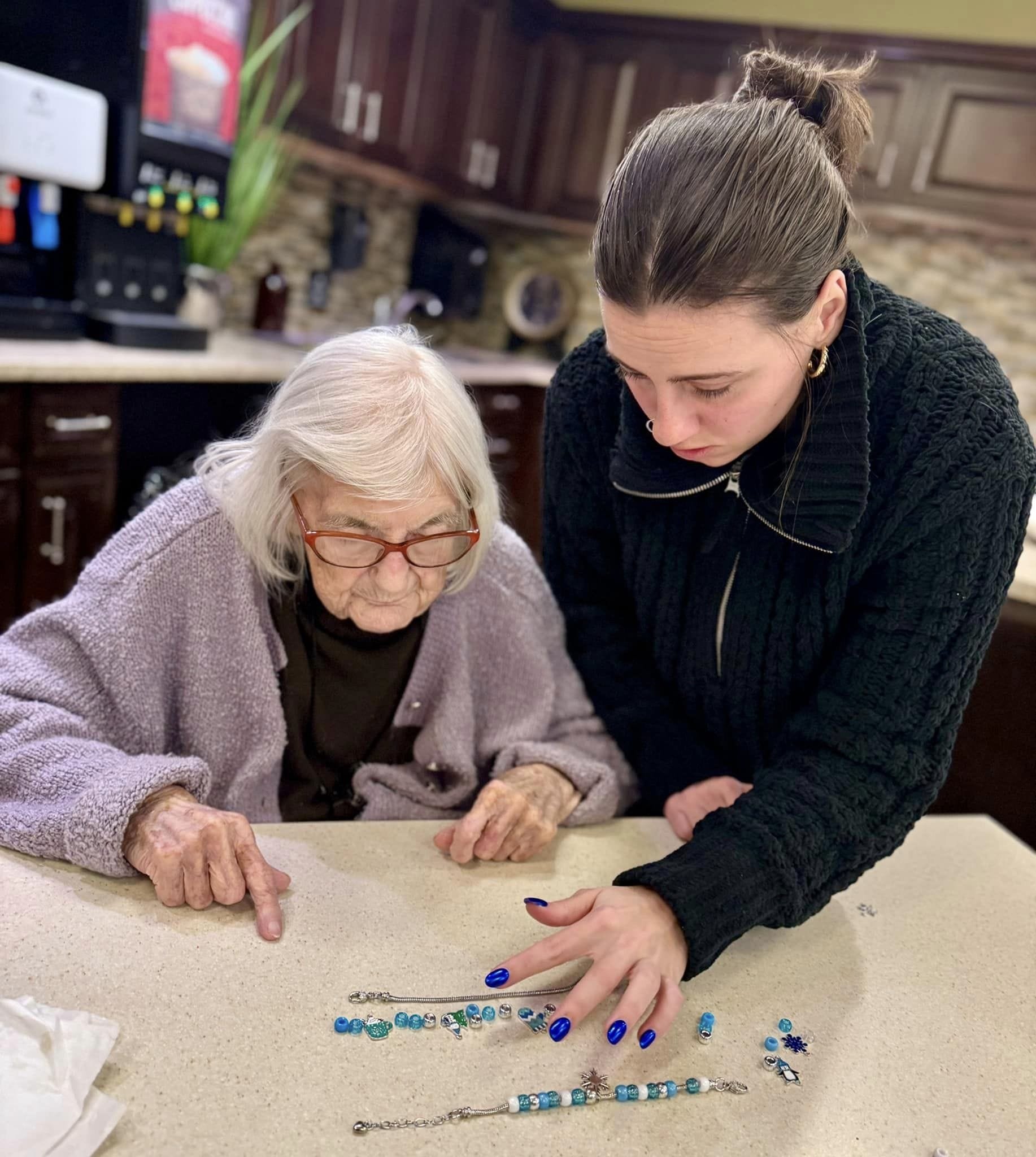High-Quality Care Program Offered Through Alzheimers Care Charlotte Centers
High-Quality Care Program Offered Through Alzheimers Care Charlotte Centers
Blog Article
Professional Tips for Giving High quality Alzheimer's Care at Home
Caring for an individual with Alzheimer's condition at home presents unique difficulties that require both understanding and tactical preparation. As we check out these expert ideas further, it becomes clear that a thoughtful method can dramatically affect the quality of life for both the caretaker and the specific obtaining care.
Understand Alzheimer's Illness
Alzheimer's condition, a progressive neurodegenerative condition, greatly impacts cognitive function and everyday living activities. It primarily affects memory, assuming, and actions, causing a gradual decrease in the capacities necessary for independent living. Early symptoms usually consist of lapse of memory, problem in analytical, and difficulties in finishing acquainted tasks. As the condition progresses, individuals might experience disorientation to time and place, damaged judgment, and changes in state of mind and personality.
The etiology of Alzheimer's is complex, entailing the build-up of amyloid plaques and tau tangles in the brain, which interfere with neuronal interaction and bring about cell death. Risk elements consist of age, genetics, and way of life choices, with the bulk of cases taking place in people over 65. Awareness of these aspects is vital for caretakers, as comprehending the condition can promote far better support and care techniques.
Moreover, Alzheimer's illness not only affects the individual yet likewise has considerable emotional and logistical ramifications for households. Identifying the stages of the illness permits caretakers to expect obstacles and adjust their method, ensuring that the requirements of those impacted are met compassion and understanding. This fundamental expertise is vital for advertising top quality treatment in your home.
Establish a Regular
Developing an organized daily regimen can considerably improve the high quality of life for people coping with Alzheimer's illness. Establishing consistent patterns aids to decrease confusion and stress and anxiety, giving a sense of protection and experience. A daily routine needs to consist of regular times for dishes, tasks, and remainder, which can assist people anticipate what to anticipate throughout the day.
Including straightforward, familiar jobs into the regimen can advertise a sense of accomplishment and freedom. Tasks like gardening, food preparation, or even basic household jobs can be advantageous. It is important to customize these activities to the individual's passions and abilities, making sure engagement without irritation.
Moreover, flexibility within the regimen is key. While consistency is important, enabling adjustments based on the person's state of mind or energy levels can aid maintain a favorable atmosphere. Motivate involvement in social communications, whether with household visits or neighborhood tasks, as these can supply excitement and link.
Enhance Communication Skills
Effective interaction is vital for preserving meaningful links with individuals coping with Alzheimer's illness. As cognitive capacities decline, traditional discussion may become challenging. Caretakers must adapt their interaction techniques to cultivate understanding and link. Alzheimers Care Charlotte.

Show genuine passion by keeping eye contact and nodding to recognize their thoughts or sensations. Instead, confirm their feelings and redirect the conversation carefully if required.
Making use of aesthetic aids, such as photos or composed tips, can also improve comprehension. Encourage participation in activities that boost conversation, such as reminiscing regarding past events or checking out image cds.
Create a Safe Environment
A helpful atmosphere plays a significant duty in the well-being of individuals with Alzheimer's disease. Creating a safe home setting is vital to lessen risks and improve the top quality of life for both the individual and their caretakers. Begin by assessing the living room for prospective threats. Get rid of stumbling risks such as loose rugs, electrical cords, and clutter. Make sure that paths are clear and well-lit to stop drops.
Set up safety and security locks on windows and doors to stop straying, which is a common concern in Alzheimer's people. Additionally, consider making use of non-slip mats in bathrooms and install grab bars for added assistance. Classifying spaces and crucial things can assist individuals browse their surroundings extra quickly.
Emergency calls ought to be clearly posted near phones, and a medical sharp system can supply comfort. Take into consideration making use of childproofing measures for sharp objects and hazardous materials. Routinely inspect smoke detectors and carbon monoxide gas alarm internet systems to ensure they are functioning. In general, tailoring the home environment to the distinct needs of the individual with Alzheimer's not only advertises safety yet additionally urges independence and comfort.
Look For Assistance and Resources
Accessing assistance and sources is critical for caregivers and people dealing with the obstacles of Alzheimer's disease. Caregiving can be overwhelming, both physically and mentally, and it is crucial for caregivers to seek aid to keep their health and offer high quality treatment.

In addition, discovering break treatment choices can afford caregivers much-needed breaks, enabling them to lower and recharge exhaustion. This might include grown-up day programs or at home treatment solutions. Monetary aid programs may likewise be readily available to aid counter the expenses of care.

Conclusion
In summary, providing top quality Alzheimer's treatment at home requires a complex method. Understanding the intricacies of the illness, establishing a structured regimen, boosting interaction skills, producing a safe setting, and looking for support from offered resources collectively contribute to boosted caregiving experiences. Executing these strategies not only fosters a feeling of self-reliance and success for individuals with Alzheimer's yet also alleviates caregiver tension, eventually improving the lifestyle for both caregivers and those they support.
Caring for a specific with Alzheimer's disease at home presents one-of-a-kind he has a good point challenges that require both understanding and critical preparation.Moreover, Alzheimer's disease not just affects the private yet also has significant psychological and logistical effects for households.Producing a structured everyday routine can considerably enhance the high you can check here quality of life for people living with Alzheimer's disease.Reliable interaction is crucial for preserving purposeful links with people living with Alzheimer's condition. Alzheimers Care Charlotte. Executing these strategies not just fosters a sense of independence and success for individuals with Alzheimer's but likewise eases caregiver stress, eventually enhancing the high quality of life for both caretakers and those they support
Report this page